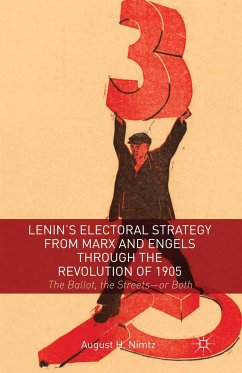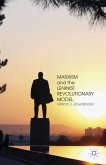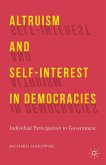Dieser Download kann aus rechtlichen Gründen nur mit Rechnungsadresse in A, B, BG, CY, CZ, D, DK, EW, E, FIN, F, GR, HR, H, IRL, I, LT, L, LR, M, NL, PL, P, R, S, SLO, SK ausgeliefert werden.
Hinweis: Dieser Artikel kann nur an eine deutsche Lieferadresse ausgeliefert werden.
"As good as Nimtz is in bringing the past to life and uncovering new and important aspects of Lenin's political practice, his analysis of current left formations falters, as he gives what seem like cursory reviews of complex situations in Greece, Germany, and elsewhere. ... Lenin's Electoral Strategy deserves to be widely read and discussed." (International Socialist Review, Issue 99, January, 2016)









